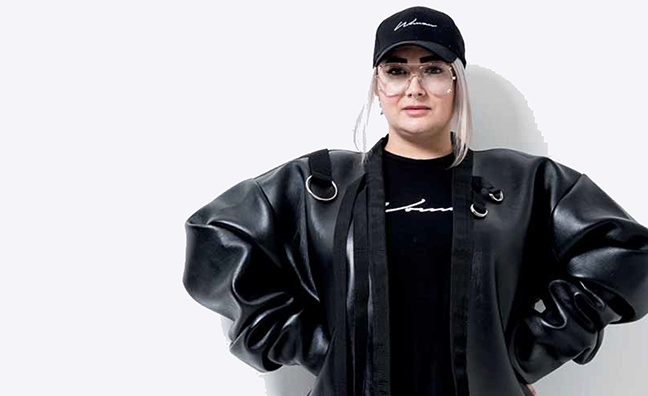Women In CTRL founder Nadia Khan has called on the music business to work with her organisation to build a more equal future for the industry.
Khan’s statement accompanies the new Seat At The Table report by Women In CTRL that analyses the diversity of staff at 12 music industry trade bodies, focusing on gender splits and representation of black women.
The report, which is available online now, found a lack of female representation in leadership positions, with three Female CEOs, and one female chair across the 12 organisations.
The figures show that, across the 12 companies, five board seats out of a possible 185 and two staff positions within 122 roles are occupied by black women.
Nadia Khan said: “As I’ve progressed through my career in the music industry over the last 18 years, I’ve seen no representation of women or minorities within organisations at the top level and I found it perplexing how white men were making all the decisions as gatekeepers on black music. A lot of my work as a manager has been consumed with fighting an uphill battle, through every hurdle and finding a way around every door that was closed for black artists in the music industry in live, TV, radio, record labels, and every other sector.”
While Khan said she values the increase in discussion around diversity, she said that “statements are not enough”.
All organisations need to take accountability
Nadia Khan
Khan said: “If we really want to really eradicate inequality in music, then all organisations need to take accountability and take concrete action to increase representation of women in leadership roles, and diversity and inclusion within their organisations for minorities, in particular black women, who are severely underrepresented.”
Women In CTRL is asking the 12 organisations studied for the survey to join its new Diversity Pledge and promise do five things: take accountability, commit to diversity, start at the top, diversify their teams and listen to women.
“I want to work with organisations to engage in open conversations and agree deliverable targets to action change,” she said. “I hope that all the organisations in the report will publicly agree to the WIC diversity pledge. It’s time for the music industry to proceed with purpose and offer a #SeatAtTheTable to women and minorities in the music industry.”
There has been little to no change in the number of black females at board level
Paulette Long OBE
Paulette Long OBE said: “As a black woman working in the music industry, I have been sitting on trade body boards for the last 14 years. The Seat At The Table report highlights the fact that there has been little to no change in the number of black females at this level for almost the entire duration of my tenure. In a sector that gains riches from its very diverse creative pool, this disparity is much too wide.
“This is a deep-rooted problem that must be addressed. Industry-wide bodies should be ashamed of the part their negligence has played in this justice imbalance, but let’s work together to bring about change. There is a rare window of opportunity open for us to do this. The place is here and the time is now. Whatever it takes, let’s paint a new picture. A picture where diversity reigns. A picture in which more Black women can finally take their seat at the table. I’ve been there. I’ve added my voice and witnessed the difference the Black and female perspective can make. What are we waiting for?”
Diversity targets should be drawn up
Kanya King, MOBO
MOBO founder Kanya King added: “I would recommend that trade bodies are to lead the way in tackling barriers to make more room for underrepresented groups to progress. Strong direction through policy, accountability and reporting is required to show that the music industry is not just for the privileged few. Diversity targets should be drawn up so that what matters gets measured.”
Music consulant Vick Bain commented: “It is clear that for black women in particular their participation and progress in these companies, who represent the entire UK music industry, is just not good enough and particular attention needs to be given to their recruitment and talent development.
“This is especially so for London, where all of the trade bodies are based, where over quarter of a million black women of working age live. But these figures show we have only five Black women on boards out of a possible 185 seats. And two women on the staff teams out of a possible 122 positions. We really can do better.”












